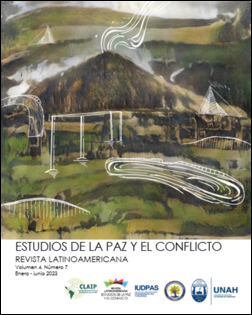"Bypassing the big multinational intermediaries is possible": interview with María Elena Bottazzi.
Capacity building, collaboration and decolonization of science om the Global South
DOI:
https://doi.org/10.5377/rlpc.v4i7.15069Keywords:
Pandemic, COVID-19, collaborative strategies, Nobel Peace Prize, vaccine, patents, researchAbstract
Maria Elena Bottazzi (Genoa, 1965) is a prestigious vaccinologist born in Italy and raised in Tegucigalpa (Honduras). Trained in Microbiology and Clinical Chemistry at the National Autonomous University of Honduras (UNAH), she obtained her PhD in Molecular Immunology and Experimental Pathology at the University of Florida. For more than two decades she has been working on the application of the partnership model for the development of vaccines and new technologies for tropical and emerging diseases (SARS and MERS), orienting her efforts to reduce the gap in access to health, through the design and transfer of appropriate and affordable technologies to countries in the Global South. Together with Dr. Peter Hotez, Maria Elena has led the team of scientists responsible for the creation of a technology that led to the development of Corbevax® in India, a patent-free and low-cost vaccine against COVID-19. As a result of a cooperative effort, this initiative for the development and distribution of the vaccine has earned her a nomination for the Nobel Peace Prize 2022. In this interview we talk to Dr. Bottazzi about the importance of open science, inter and transdisciplinary research processes, the need to promote more and better collaborative efforts outside the logic of the market between research centers, universities and researchers, and, of course, the particularities of the methodology followed for the development of the vaccine, and its relevance for peacebuilding in the world. There is an urgent need to recover the commitment to health, understood as a thread that runs through human welfare and, therefore, as a universal right and not a business. To make this effective, it is essential to guarantee universal and free access to health services.
Downloads
1219
HTML (Español (España)) 52
XML (Español (España)) 26
EPUB (Español (España)) 128
Downloads
Published
How to Cite
Issue
Section
License
Copyright (c) 2022 Latin American Journal of Peace and Conflict Studies

This work is licensed under a Creative Commons Attribution 4.0 International License.
The journal's contents are published under a Creative Commons Attribution 4.0 license (CC BY 4.0). This license allows third parties to share (copy and redistribute the material in any medium or format) and adapt (remix, transform and create from the material for any purpose, including commercial), as long as the authorship and first publication in this journal (Revista Latinoamericana Estudios de la Paz y el Conflicto, Universidad Nacional Autónoma de Honduras - Consejo Latinoamericano de Investigación para la Paz, DOI of the work) is acknowledged, a link to the license is provided and it is indicated if changes have been made to the original. The terms of the license are available online at http://creativecommons.org.




